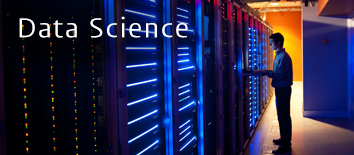Research
At Leiden University, researchers from all disciplines work together to find answers and design innovations in the field of artificial intelligence.
Machines that learn, evolve and interact with people
Automation started with the first computers, seventy years ago. Now the era is dawning of ‘the automation of automation’: computers that can learn from their experiences independently. Artificial Intelligence (AI) is going to change the world drastically. Leiden researchers conduct wide-reaching research on AI, including with partners from Delft University of Technology and Erasmus University.
‘Artificial intelligence is not new,’ says Aske Plaat, Professor of Data Science. 'Today, intelligence is everywhere, even an automatic sliding door has some intelligence. But recent years have seen a revolution in AI. And thanks to better algorithms and calculating power, the prospects for the coming years are even more spectacular.’ Holger Hoos, Professor of Machine Learning, believes that AI will be omnipresent: ‘We are currently still developing AI machine learning by hand. In the future, it will be driven by AI itself. Self-learning means AI by AI.’
Bug-free software
Automated learning is one of the core themes of AI. The other is automated reasoning. Checking whether software does exactly what it should do can now be done automatically. Important parts of computer chips and an increasing proportion of critical software – in aircraft, for example – now undergo rigorous checks via AI programmes. Hoos: ‘We can guarantee that there are no bugs in that software.’
Personalised healthcare and new medicines
Plaat and Hoos expect personalised healthcare will also benefit from AI. Recognising patterns in large amounts of patient data can lead to therapies personally tailored for the individual patient. AI will also help in finding new candidate medicines. Leiden’s computer scientists are already working on this with the Pharmacology department at the LUMC and with biomedical companies, including on the Leiden Bio Science Park (LBSP)
Plaat: 'In Leiden, we’re also strong in computer vision: recognising digital images via the computer. This has applications in areas ranging from analysing MRI images to searching for archaeological sites. Research is also taking place at the Leiden Faculty of Law, for example, on the implications of AI for society and ethics: what happens when algorithms make choices for us?
Broad AI applications
Leiden also has a leading position in computational linguistics: processing natural language and speech recognition. There is intensive cooperation in this field with the Faculty of Social and Behavioural Sciences and the Faculty of Humanities. What makes AI research in Leiden so interesting is the presence of and collaboration with so many disciplines and fields of application within a single university. This attracts researchers from outside, for example from the Leiden-Delft-Erasmus Universities alliance.


